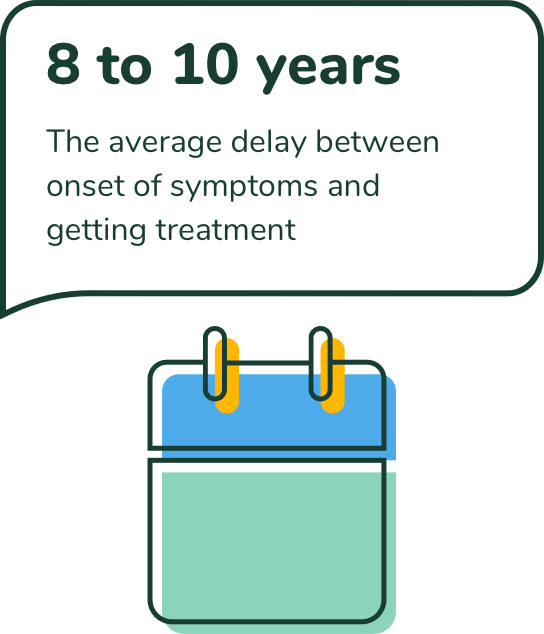Signs of depression should never be ignored. Know what to watch for so you’re prepared to help someone if they need it.


Advice for family and friends
There’s no right or wrong way to be supportive. Every relationship is different — just like everyone’s experience with depression. But there are some things to keep in mind when you’re trying to help someone you care about.
They might not be ready to talk
Don’t take it personally if they say, “I’m fine,” or, “leave me alone,” even if it’s someone you’re close with. You can’t force them to talk — all you can do is express your concern, offer your support, and let them know you’re willing to listen. If they’re not ready, try bringing it up again later, or ask other friends or family members to try talking to them.


Source: National Alliance on Mental Illness
Depression isn’t anyone’s fault
Depression is a real, common, and treatable medical illness. It’s a disease, not a character flaw or personal weakness. Living with depression is hard, and it can take a toll on friends and family — but nobody’s to blame. You can’t make a person depressed, and you can’t make their depression go away.
Take care of yourself
Supporting someone who’s living with depression can be overwhelming. But you can’t be a strong source of support if you don’t take good care of yourself. Make it a point to eat well and get enough sleep and exercise. Keep doing things you enjoy, stay connected to other people in your life, and don’t be afraid to ask for support for yourself. Thinking about your own needs isn’t selfish, it’s essential.
Connecting with others can help
NAMI Family Support Groupexternal is a great resource for family members, partners, and friends of people who are experiencing mental health conditions like depression.
Speak up to fight stigma
There are myths about depression that simply aren’t true — that it’s all in the person’s head, that it’s a choice, or that people with depression are “crazy” or “weak.” This can make people feel like it’s not safe to talk about depression — so they keep their feelings hidden, and many never get the help they need.
If you hear people spreading negative stereotypes, call them out. Your words have power — if more people speak up to fight stigma, someday depression won’t be so hard for people to talk about.





